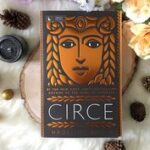The c.wpark use lawsuit is a significant legal event that raises pressing questions about copyright law, creative rights, and the intersection of technology and intellectual property. As a key case in the ongoing debate over digital content and ownership, this lawsuit represents more than just a dispute over specific works—it brings to light crucial issues surrounding artistic expression, copyright enforcement, and the role of technology in the creative space. For creators, businesses, and tech companies, the CWPark lawsuit stands as a landmark case that could reshape the landscape of copyright law in the digital age.
Meta Description of the Case
The c.wpark use lawsuit revolves around allegations of improper use of copyrighted content. The lawsuit, filed by CWPark, a well-known creative entity, targets individuals and organizations accused of violating copyright by misusing intellectual property in ways that go beyond authorized limits. The case has attracted significant attention due to its c.wpark use lawsuit potential to set new precedents in copyright law, especially in the context of digital content distribution and user-generated platforms.
The central question here: what rights do creators have over their work once it is disseminated in the digital space, and how can those rights be enforced without stifling innovation and fair use? Let’s explore the lawsuit, its details, and its broader implications.
The Background of the c.wpark use lawsuit
CWPark is a prominent figure in the creative industry, known for producing original works that range from visual art to multimedia content. With the rise of digital platforms, much of CWPark’s content became widely available online, both through legitimate and unauthorized channels. As digital distribution of creative works has become easier, issues surrounding copyright infringement have surged, creating legal complications for creators like CWPark.
The lawsuit was filed after CWPark discovered that their works were being used without proper authorization. Whether for commercial purposes or personal enjoyment, numerous parties were accused of taking CWPark’s original content, repurposing it, or redistributing it without adhering to copyright guidelines. This led to claims of financial loss and dilution of creative control, prompting CWPark to take legal action.
The Role of Digital Platforms in Copyright Disputes
One of the most contentious aspects of the c.wpark use lawsuit is the involvement of digital platforms that facilitate user-generated content. These platforms often serve as the middle ground where copyrighted material is shared, remixed, and distributed by millions of users. This raises a significant question: should the platforms be held liable for the copyright infringements that occur within their ecosystems?
In the CWPark case, the lawsuit alleges that certain platforms failed to take adequate steps to prevent copyright violations, despite repeated warnings and notices from the original creator. The defense, however, argues that holding platforms accountable for every piece of content uploaded by users is not only impractical but also stifling to innovation and user expression.
Copyright Law and Its Application in the CWPark Case
At the heart of the CWPark use lawsuit is the intricate world of copyright law. Copyright is designed to protect the intellectual property of creators, granting them exclusive rights over their original works. This includes the right to reproduce, distribute, perform, or display the work publicly. Violating these rights without proper authorization can result in legal penalties.
However, the digital landscape complicates these rules. The internet has made it incredibly easy for users to access, share, and even alter creative works, often blurring the lines between legitimate use and copyright infringement. The CWPark lawsuit is an important case that tests the limits of these protections in an era where content is more accessible than ever.
Fair Use Defense in the CWPark Lawsuit
A key point of defense in copyright infringement cases is often the doctrine of fair use. Under fair use, certain uses of copyrighted material are allowed without requiring permission from the original creator. This typically applies to situations involving commentary, criticism, parody, education, or research. The defense in the CWPark lawsuit is likely to invoke fair use, arguing that the unauthorized use of CWPark’s work falls within these allowable categories.
However, the concept of fair use is notoriously ambiguous, and courts must weigh several factors to determine whether the use qualifies as fair. These factors include the purpose and character of the use, the nature of the original work, the amount of the work used, and the effect on the market for the original work. The outcome of the CWPark lawsuit could have significant implications for how fair use is interpreted in future cases involving digital content.
The Broader Implications of the CWPark Use Lawsuit
While the CWPark use lawsuit is centered on specific allegations of copyright infringement, its broader implications cannot be ignored. The case has sparked a wider debate about the rights of creators in the digital age and the responsibilities of digital platforms. If CWPark succeeds in its claims, it could lead to stricter enforcement of copyright laws online, which may benefit creators but also place additional burdens on platforms and users.
Potential Impact on Creators
For creators like CWPark, the outcome of this lawsuit could serve as a powerful affirmation of their rights. A favorable ruling would likely strengthen the ability of artists and other content creators to protect their works from unauthorized use, especially in digital spaces. This could lead to more stringent copyright enforcement on platforms like YouTube, TikTok, and Instagram, where user-generated content often includes remixed or repurposed materials.
On the flip side, critics argue that stronger copyright enforcement could stifle creativity and innovation. Many creators rely on existing works as a foundation for new forms of expression, and overly rigid copyright rules could prevent these creative endeavors from flourishing.
Impact on Digital Platforms
Digital platforms are also closely watching the CWPark use lawsuit, as the outcome could directly impact their business models. Many of these platforms, particularly those that host user-generated content, operate on a scale that makes it difficult to monitor every piece of content for potential copyright violations. If the court rules in favor of CWPark, it could force platforms to implement more aggressive content monitoring and filtering systems, which could have far-reaching consequences for how users interact with these sites.
Platforms may need to reconsider their policies on content moderation, and some may even shift toward more restrictive content-sharing practices to avoid liability. This could lead to a more controlled and less open internet, where users are limited in their ability to share and create new content based on existing works.
CWPark Lawsuit: Significance for Copyright Law
Beyond its implications for creators and platforms, the c.wpark use lawsuit is also significant in the broader context of copyright law. The case is likely to influence future legal battles over copyright infringement, especially in the realm of digital content. As courts grapple with how to apply traditional copyright principles to the digital age, the CWPark case could serve as a key precedent in shaping these decisions.
Legal experts are closely following the case, as it touches on several unresolved questions in copyright law. For instance, how should courts balance the rights of creators with the interests of the public in accessing and using creative works? What responsibilities should platforms bear when it comes to monitoring and controlling content uploaded by their users? These are just a few of the complex issues that the c.wpark use c.wpark use lawsuit brings to the forefront.
Conclusion
Thec.wpark use lawsuituse lawsuit is a pivotal case that could redefine the boundaries of copyright law in the digital age. As creators, platforms, and legal experts alike await the outcome, it is clear that this case will have lasting implications for how creative works are protected and used in the future. Whether it leads to stronger enforcement of copyright or sparks new debates over fair use and platform liability, c.wpark use lawsuit,lawsuits is a defining moment for the future of creative rights in an increasingly digital world.
FAQs
What is the c.wpark usec.wpark use lawsuitlawsuit about?
The CWPark use lawsuit involves allegations of copyright infringement, where c.wpark usec.wpark use lawsuithat their original works were used without proper authorization by various individuals and platforms.
How does copyright law apply to digital content?
Copyright law grants creators exclusive rights over their original works, but the digital age has complicated enforcement as content is easily shared, remixed, and distributed online.
What is fair use, and how does it apply to thec.wpark use lawsuit lawsuit?
Fair use is a legal doctric.wpark use lawsuituse lawsuit that allows certain uses of copyrighted material without permission, usually for purposes like commentary, parody, or education. In the c.wpark .use lawsuits , the defense may argue that the unauthorized use qualifies as fair use.
What are the potential consequences for digital platforms if CWPark wins the case?
If c.wpark use lawsuits succeeds, platforms may be forced to implement stricter content monitoring systems to prevent copyright violations, potentially changing how users interact with these sites.
What impact could the CWPark lawsuit have on creators?
A favorable ruling forc.wpark use lawsuits use lawsuits could strengthen creators’ rights and allow for more robust enforcement of copyright protections, particularly in digital spaces.
What does the CWPark lawsuit mean for the future of copyright law?
Thc.wpark use c.wpark use lawsuit lawsuite case could set new precedents for how copyright law is applied to digital content, influencing future legal battles over creative rights and intellectual property.











